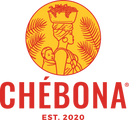Ask the average person what “postpartum” means, and you’ll likely hear the same answer: depression. While postpartum depression is a very real and serious condition affecting 1 in 7 mothers, the word “postpartum” itself simply means ‘after birth.’ It is not, and was never meant to be, a diagnosis.
So how did an entire season of a woman’s life—one that includes hormonal shifts, physical recovery, breastfeeding, identity transformation, and deep emotional recalibration—get reduced to a single pathology?
At Chébona, we believe it’s time to reclaim the word postpartum in its full context. The stakes are too high not to.
How “Postpartum” Became Synonymous With Depression
The conflation of postpartum with postpartum depression (PPD) is rooted in medical shorthand and media oversimplification. For decades, headlines and clinical conversations labeled women struggling emotionally after childbirth as “postpartum,” when the accurate term was “experiencing postpartum depression.”
This linguistic shortcut—used in hospitals, TV shows, and even social circles—eventually shaped public perception. Today, many still think of postpartum as a mental illness, rather than the natural and universal stage of recovery after childbirth. It’s a cultural misstep that has silenced critical conversations about postpartum care, postnatal nutrition, and the everyday needs of mothers in their fourth trimester.
The Consequences of the Confusion
When “postpartum” is framed solely as a crisis, we miss the opportunity to support new mothers holistically. The result? Millions of women feel afraid to name what they’re going through, or they believe something must be “wrong” with them if they’re not glowing after birth. Others simply don’t know they’re allowed to ask for help with anything beyond a baby check-up.
This misunderstanding can also prevent families, employers, and even policy makers from providing the comprehensive postpartum support women need—nutritionally, emotionally, and physically. Postpartum healing isn’t just about mental health. It’s about rest, rebuilding tissue, balancing hormones, regulating blood sugar, and nourishing the body after a transformational event.
Correcting the Narrative: Postpartum Is a Season, Not a Symptom
The truth is, every woman is postpartum after birth—whether she feels joy, grief, exhaustion, or all three. Reframing postpartum as a vital and sacred chapter (not just a problem to fix) allows us to talk more openly about postpartum nutrition, maternal recovery, and long-term health outcomes for both mother and child.
Postpartum depression is one possibility on the spectrum of maternal mental health. But there’s also postpartum anxiety, postnatal depletion, and many mothers who simply need support—not medication. To address this, we need better education, more accessible care, and culturally relevant resources rooted in ancestral postpartum traditions.
How Chébona Is Reclaiming the Postpartum Experience
At Chébona, we center postpartum in its full humanity. We provide ready-to-eat, slow-cooked meals and lactation-supportive snacks made with nutrient-dense ingredients like moringa, oats, adaptogenic herbs, and warming spices. Our postpartum food delivery service isn’t just about convenience—it’s about offering real, functional support in a country that too often fails new moms.
We also advocate for a new language around the fourth trimester—one that includes healing foods, community care, and mental wellness without stigma. Postpartum is a journey, not a problem. And every mother deserves to be nourished, seen, and held through it.





